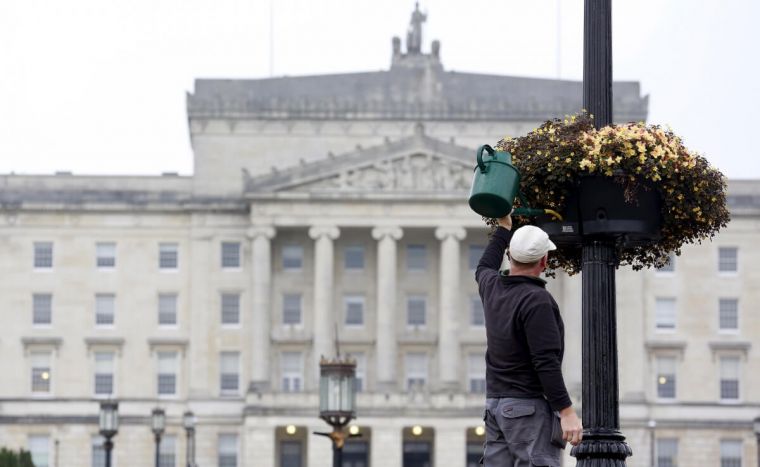Thousands to join silent protest against new Northern Ireland abortion laws

Thousands are expected to take part in a silent protest at Stormont against the imminent liberalisation of Northern Ireland's abortion laws.
Access to abortion is set to be drastically liberalised in the province after MPs in Westminster passed an amendment in July that removes many of the current protections for the unborn.
The changes will come into effect on October 21 unless the Stormont Executive, which has been suspended for the last two years, is reinstated before then.
The walk to Stormont has been organised by the 'NI Voiceless' campaign group, which spans people of all political persuasions and religious backgrounds, as well as people of no faith.
Starting at 7pm on Friday, protesters will walk in silence to the foot of the steps of Stormont, where they will then stand in silence with heads bowed and holding lights for six minutes to represent the six counties in Northern Ireland.
Organiser Sarah Crutchley said that it was a deliberately "solemn" event to reflect the solemn nature of the new law coming in.
She said that although the question of abortion access was "divisive" in Northern Ireland, the impending changes were "not what a majority of people want".
"While some people might want some liberalisation of the law, I certainly don't think people want no legal restrictions at all," she said.
She added that a lot of people in Northern Ireland felt that the law is being "imposed" on them, while at the same time there was "a lot of frustration" that Stormont is unable to decide on this issue itself while it remains suspended.
She urged people concerned over the changes to the law to attend the vigil on behalf of the "unborn who cannot speak".
"Those in Westminster who are trying to impose this legislation haven't considered the unborn children who cannot speak," she said.
"This is a pressing time in Northern Ireland, where concerned citizens, like myself, of all ages, religions and political persuasions can come together and express our deep concern and dissatisfaction with the decisions made in Westminster to impose extreme abortion laws in our country.
"Our silence will speak volumes. We were not asked, and the unborn children have no voice. Together we are NI Voiceless."
The new law will open the door for the possibility of abortions up to 28 weeks, for any reason, including gender selection, disability and socio-economic factors.
Christian advocacy group CARE NI is also joining the protest at Stormont. It said that the decision by MPs and Peers in Westminster was "out of step" with what the people of Northern Ireland want.
CARE NI Director, Tim Martin said: "There is real anger and unrest here about how Westminster has imposed such profound social changes on Northern Ireland without any consultation.
"Our current law on abortion is a life-affirming one and we believe it sends a positive message that both the lives of mothers and babies matter.
"At CARE NI, we are passionate about the value of life of every human being, from conception right through to life's natural end. It does not matter who you are, where you are from, what you look like or what your background is, we believe that every human being has intrinsic dignity.
"There are many, many people across NI who share this vision – some Christians, others not – but united in the belief that abortion is rarely in the best interests of the mother or child."
He continued: "Peacefully and with purpose we will send a clear message to our elected representatives that we want to see the Assembly restored so decisions about abortion law can be made here."
CARE NI Policy Officer, Mark Baillie said the imposition of such a law on Northern Ireland was "unacceptable".
"Abortion law is a devolved matter and there is no legitimate justification for Westminster interfering in this way," he said.
"We want to see a restored Assembly so sensitive, complicated and important issues like abortion law can be debated in our Assembly, by our elected representatives, rather than by MPs and Peers who do not represent NI constituencies."
He added: "We are hoping that political parties here will see a powerful demonstration of people's frustration at what's happened and there will be a renewed willingness to put differences aside to see the Assembly restored to NI."











